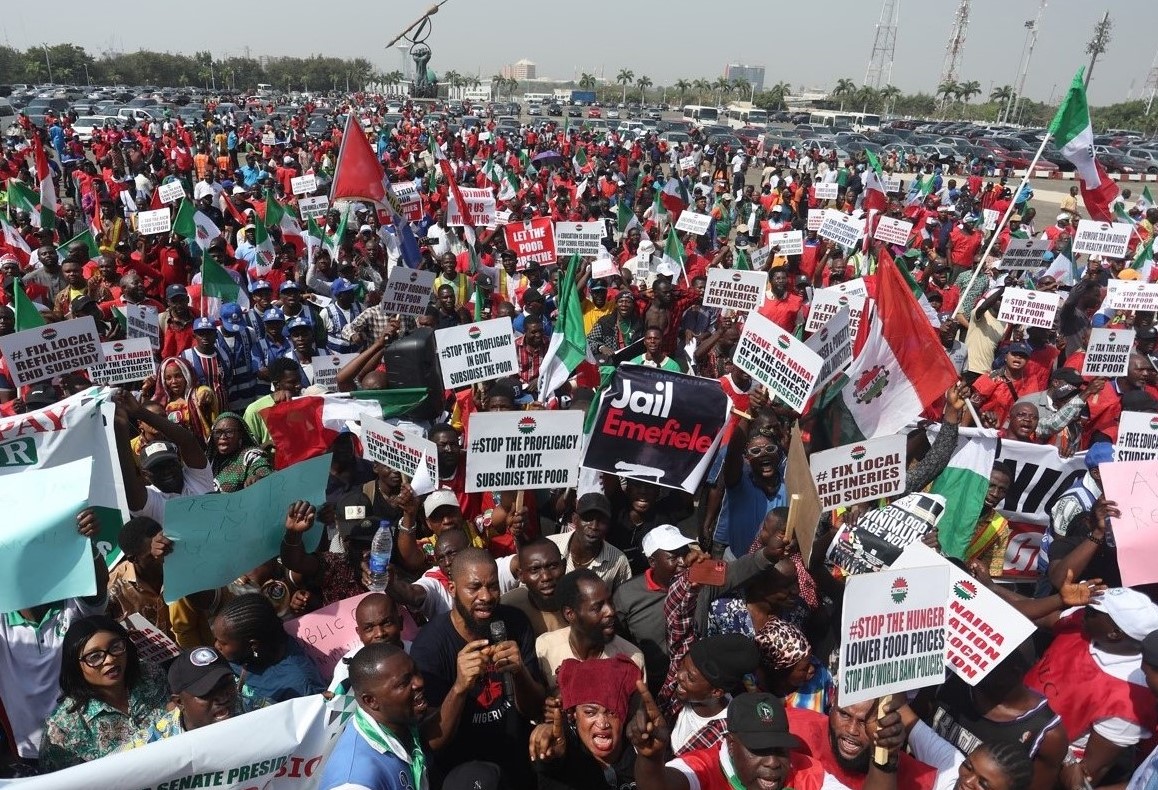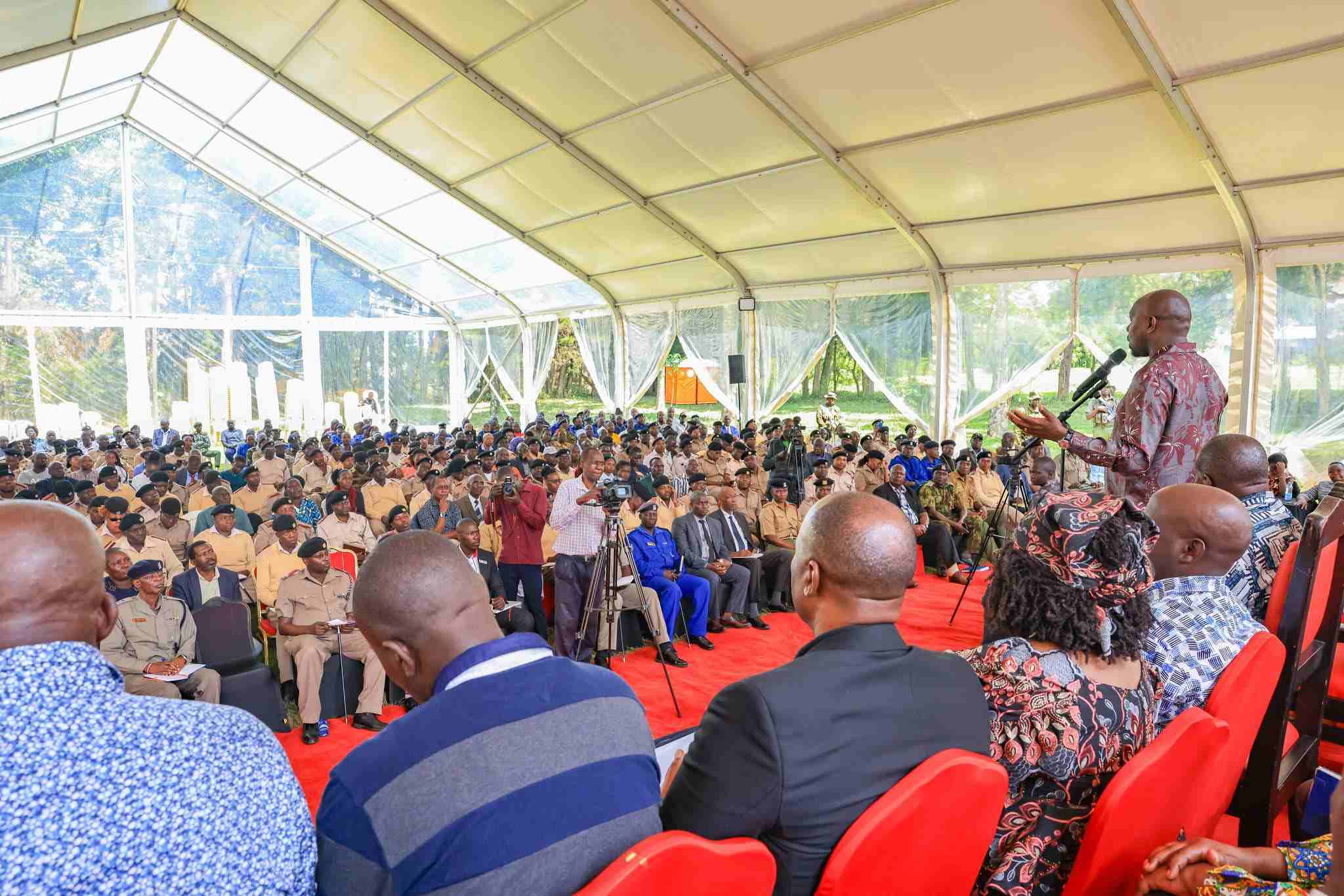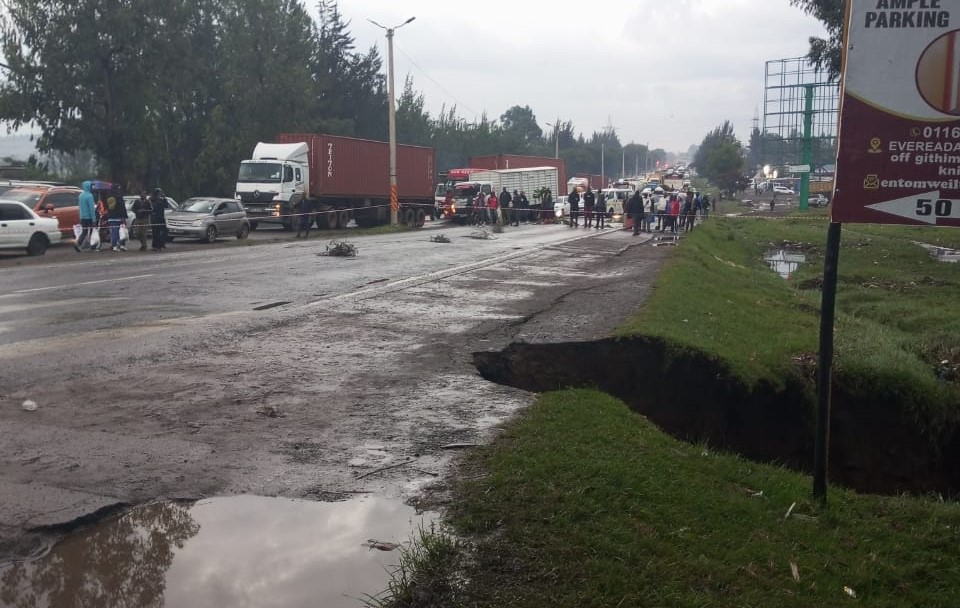Nigeria tightens security after food store looting

Many poor Nigerians have had to skip meals and give up products such as meat, eggs and milk, while in the north the economic crisis has forced people to eat poor-grade rice used as fish food.
Nigeria's emergency agency says it has tightened security at its warehouses after hundreds of people looted a food store in the capital at the weekend.
The raid on the outskirts of Abuja marks the latest social unrest over soaring prices and the country's fraying economy after thousands of demonstrators joined labour union protests last week.
More To Read
- Nigeria to impose retaliatory visa rules in response to US social media requirement
- Former Nigerian President Muhammadu Buhari dies in London aged 82
- Netherlands returns 119 historic Benin Bronzes stolen from Nigeria
- Nigerian President Tinubu announces death of army chief
- Nigeria's President says economic reforms will continue despite hardships
- Nigeria unions suspend strike for talks over new minimum wage
Nigerian news channels and social media images showed hundreds of people raiding the warehouse in the Gwagwa area on Sunday, carting away sacks of grain on foot and by motorbike.
The National Emergency Management Agency said it did not own the warehouse, but declared it would "strengthen security in and around the agency's offices and warehouses nationwide" as a precaution.
On Monday the minister of state for the area around the capital confirmed the raid took place at a Federal Capital Territory Administration warehouse, calling it a crime "beyond hunger."
"This is a sign that we need to reinforce the security situation around all our warehouses," Mariya Mahmoud said.
Last Tuesday, thousands of Nigerians rallied against soaring living costs as the worst economic crisis in a generation leaves many struggling to buy food.
Demonstrators hoped nationwide protests called by the Nigeria Labour Congress umbrella union would pile pressure on the government, which brought in reforms last year that have had a devastating effect on citizens of Africa's biggest economy and most populous country.
Since coming to office last year President Bola Tinubu has ended a fuel subsidy and currency controls, leading to a tripling of petrol prices and a spike in living costs as the naira has slid against the dollar.
The inflation rate reached a three-decade high of almost 30 per cent in January, according to the National Bureau of Statistics.
Tinubu has called for patience to allow his reforms to take effect, saying they will help attract foreign investment, but the measures have hit people hard.
Many poor Nigerians have had to skip meals and give up products such as meat, eggs and milk, while in the north the economic crisis has forced people to eat poor-grade rice used as fish food.
To feed their children, women have even resorted to digging up anthills in search of grain stored by the insects, videos on social media show.
Top Stories Today
Reader Comments
Trending















































